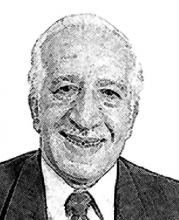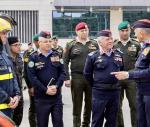You are here
Not without a ‘parallel ideological offensive’
Apr 02,2016 - Last updated at Apr 02,2016
The Brookings Institute started on March 26 is another initiative meant to understand political Islam through what it termed as “the first project of its kind to systematically assess the evolution of mainstream Islamist groups across 12 country cases”.
“The project engages scholars of political Islam through in-depth research and dialogue to consider how the Arab uprisings and their aftermath have shaped — and in some cases altered — the strategies, agendas and self-conception of Islamist movements,” it says.
It is clear that the Daesh expansion into Libya and sub-Saharan Africa within two years, and the successive terrorist blasts in Brussels, San Bernardino and Paris jolted decision makers in Washington and London to rethink their former misconceptions and stereotypes about Sunni Muslims and Islam.
Decades ago, similar projects were initiated by think tanks about Shiite Muslims before clandestine diplomacy started secret deals with Iranian revolutionary leaders in what was termed the Iran-Contra accords and the Tehran nuclear detente.
Washington’s pattern of political behaviour was repeated and became explicitly visible when American think tanks were entrusted with a study of the Viet Cong psyche, morale, emotional vibes and frame of mind.
When, in 1965, the Viet Cong revealed their stoic resistance to carpet bombing and yellow cloud chemicals, the American military generals started the same secret deals in the Paris rounds of peace talks that ended up in the reunification of the two Vietnams in 1975 and a total recognition of the former enemy.
Think tank studies were always one step ahead of secret deals to be signed.
When US Secretary of State John Kerry wanted to use a derogatory word against Daesh on February 2, 2016, he chose “apostate” to describe its leaders, which is a magical word for the group since it has the magnetism to attract more followers, gleaned from the new breed of “true believers” who are waiting for the “apocalyptic moment of vision” to enter paradise through martyrdom or suicide explosive belts.
The Brussels and San Bernardino massacres reveal a new breed of apocalyptic fighters who are neither poor nor unemployed.
They are second-generation citizens who secured a decent way of living, never felt outcast in their work environment and had many opportunities to lead a decent normal life.
But Daesh’s online recruitment centres enticed them to commit the most abominable crimes through an invitation to witness the apocalyptic glory of heaven.
It is counterproductive to think that a military or security option will eradicate Daesh with no parallel ideological offensive.
It is ironic in this respect to read what Interfax news agency said, quoting Russian Deputy Foreign Minister Oleg Syromolotov last week: that Russia and the United States are discussing “concrete” military coordination to liberate the Daesh stronghold of Raqqa in Syria.













